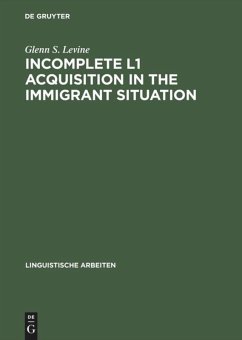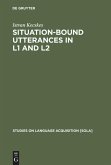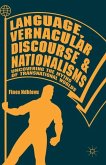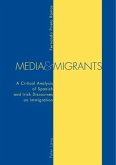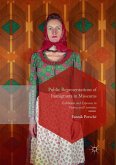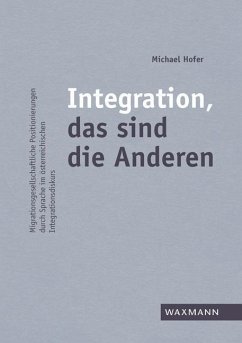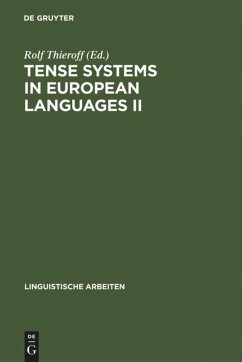In order to establish a model for the investigation of 'incomplete L1 acquisition' - the phenomenon whereby a bilingual speaker incompletely acquires the socially non-dominant language - the author offers a description and analysis of the speech of ten elderly speakers of Yiddish who acquired Yiddish as an L1 simultaneously with English but have not used the language since childhood. Of central interest is the question of whether the divergent forms in the data are the result of L1 attrition - the loss of knowledge once possessed - or incomplete L1 acquisition - lack of initial acquisition of the forms reflecting in the data 'fossilized' divergent child language.
Bringing together certain disparate theoretical ideas, the author accepts Chomskyan notions of innateness and the language faculty while also considering the role of input in social/sociolinguistic terms. Specifically, issues such as 'linguistic identity' and patterns of use are shown to affect the quality of acquisition in bilingual situations. Through comparison with the speech of 'native' Yiddish adults, and mono- and bilingual German and Dutch children, a linguistic rule (present perfect) is isolated and shown to be due to incomplete L1 acquisition and not L1 attrition. In short, the study offers an account of what occurs when the child's innate inclination to organize linguistic input into a mature linguistic system collides with insurmountable social and sociolinguistic hindrances to 'normal' acquisition.
Die Monographie erarbeitet einen theoretischen Rahmen für die Untersuchung von unvollständigem Erstspracherwerb am Beispiel des Jiddischen. Die Analyse konzentriert sich auf das Sprachverhalten älterer Menschen, die Jiddisch gleichzeitig mit Englisch erwarben und die jiddische Sprache seit der Kindheit nicht mehr verwendeten. Im Zentrum steht die Frage, ob ungrammatische Formen im untersuchten Material auf den Verlust ursprünglich gekannter Formen oder auf den unvollständigen Erstspracherwerb zurückzuführen sind. Die Untersuchung macht die Annahme der letztgenannten Möglichkeit wahrscheinlich.
Bringing together certain disparate theoretical ideas, the author accepts Chomskyan notions of innateness and the language faculty while also considering the role of input in social/sociolinguistic terms. Specifically, issues such as 'linguistic identity' and patterns of use are shown to affect the quality of acquisition in bilingual situations. Through comparison with the speech of 'native' Yiddish adults, and mono- and bilingual German and Dutch children, a linguistic rule (present perfect) is isolated and shown to be due to incomplete L1 acquisition and not L1 attrition. In short, the study offers an account of what occurs when the child's innate inclination to organize linguistic input into a mature linguistic system collides with insurmountable social and sociolinguistic hindrances to 'normal' acquisition.
Die Monographie erarbeitet einen theoretischen Rahmen für die Untersuchung von unvollständigem Erstspracherwerb am Beispiel des Jiddischen. Die Analyse konzentriert sich auf das Sprachverhalten älterer Menschen, die Jiddisch gleichzeitig mit Englisch erwarben und die jiddische Sprache seit der Kindheit nicht mehr verwendeten. Im Zentrum steht die Frage, ob ungrammatische Formen im untersuchten Material auf den Verlust ursprünglich gekannter Formen oder auf den unvollständigen Erstspracherwerb zurückzuführen sind. Die Untersuchung macht die Annahme der letztgenannten Möglichkeit wahrscheinlich.

